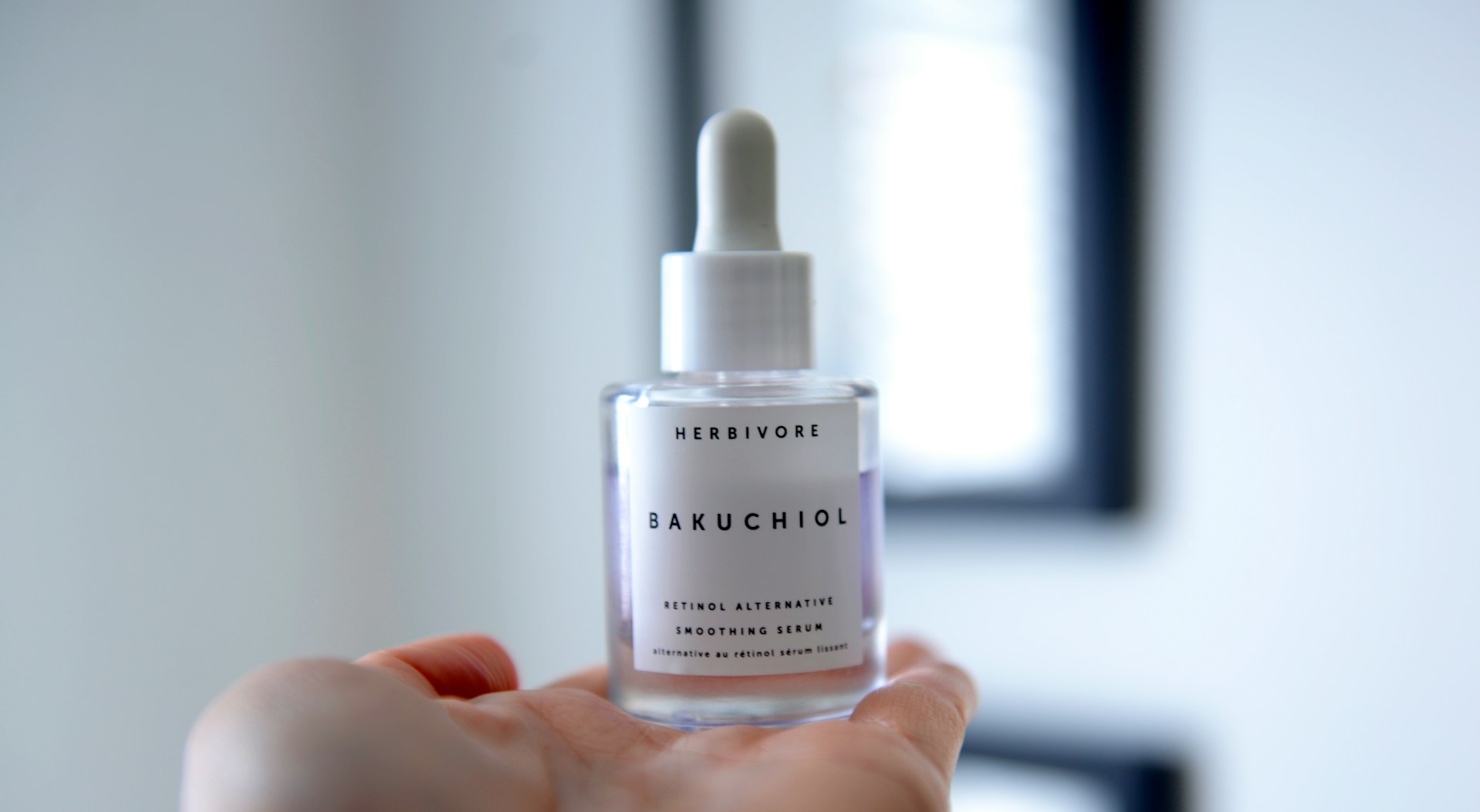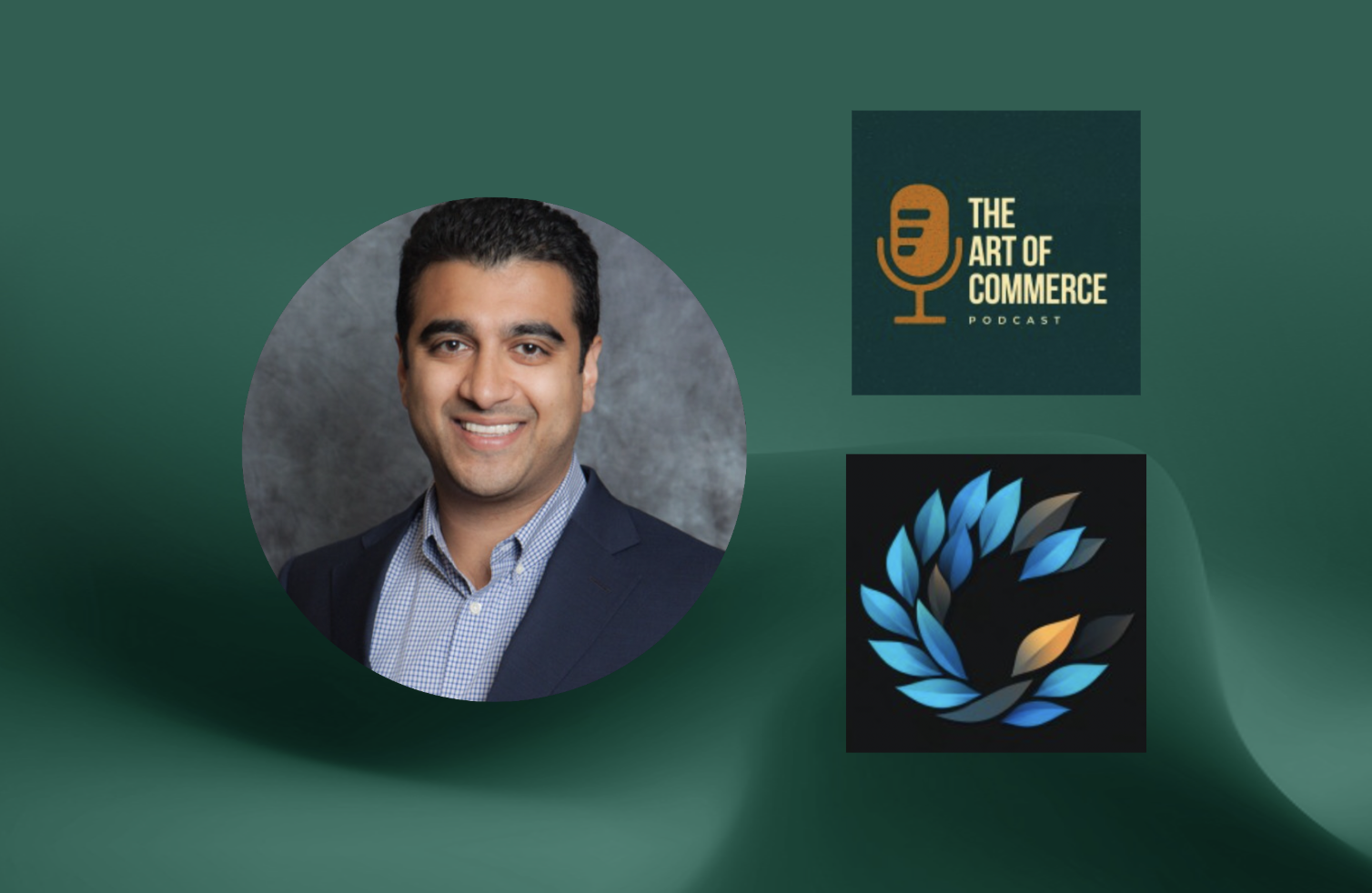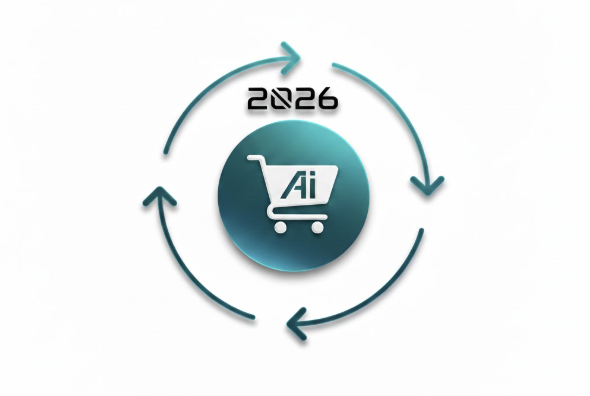How Beauty Brands Can Leverage Onsite Search to Increase Conversions with Agentic Commerce Solutions

Key Takeaways
- Global ecommerce conversion rates average 2.58%, with beauty brands performing in similar ranges, but consumers who use onsite search are 2.4x more likely to buy and spend 2.6x more than non-searchers
- AI-powered search eliminates zero-results frustration—15% of ecommerce sites have broken search performance, but best-in-class implementations achieve under 5% zero-results rates through typo tolerance, synonym recognition, and intelligent fallback recommendations
- 156% conversion increase is achievable with advanced search optimization, while beauty-specific implementations deliver 11.5% conversion rate lifts and $5.35M annualized incremental revenue
- Agentic Commerce Protocol unlocks access to ChatGPT's large user base (widely reported in the hundreds of millions), positioning early-adopter beauty brands in AI-driven shopping interfaces where high-intent buyers complete purchases
- Brand safety requires multi-layer approaches for beauty products, especially in regulated categories like baby products, supplements, and cosmetics where compliance violations carry significant risk
The beauty ecommerce landscape has reached an inflection point where AI-powered search and conversational commerce separate high-performing brands from those struggling with stagnant conversion rates. While shoppers who use onsite search are 2.4x more likely to buy than non-searchers, most beauty brands still rely on basic keyword matching that fails when customers search for "foundation for dry winter skin" or "cruelty-free mascara under $30."
The gap between search intent and product discovery creates massive revenue leakage. Modern beauty shoppers expect AI-powered experiences that understand context, recognize synonyms, and deliver personalized recommendations based on skin type, ingredients, and preferences. Brands that master this transformation capture disproportionate market share.
This guide reveals how beauty brands implement AI-powered onsite search and agentic commerce solutions to drive measurable conversion improvements, from foundational search optimization to cutting-edge ChatGPT shopping integration.
Understanding the Current State of Beauty Ecommerce Conversion Rates
Beauty Industry Benchmarks in 2026
Beauty and cosmetics brands face unique conversion challenges compared to other ecommerce verticals. The global ecommerce conversion rate of 2.58% applies broadly across verticals, with beauty showing significant variation across product categories and customer segments.
Industry Performance Indicators:
- Premium beauty brands converting at 3-5% through personalized consultations
- Mass-market cosmetics averaging 1.5-2.5% without search optimization
- Specialty skincare achieving 4-7% with ingredient-focused search capabilities
- Multi-brand beauty retailers struggling at 1-2% due to overwhelming product selection
The gap between top performers and laggards comes down to product discovery effectiveness. Beauty shoppers face decision paralysis when confronted with hundreds of foundation shades, dozens of ingredient combinations, and conflicting advice about skin type compatibility.
How Beauty Brands Compare to Other Ecommerce Verticals
Search behavior in beauty differs fundamentally from other categories. Unlike electronics purchases driven by specifications or fashion driven by style, beauty product discovery combines emotional, functional, and aspirational elements:
Beauty-Specific Search Challenges:
- Shade matching across brands ("MAC NC25 equivalent in NARS")
- Ingredient-based queries ("retinol serum without fragrance")
- Concern-driven searches ("best moisturizer for sensitive acne-prone skin")
- Seasonal needs ("summer-proof foundation for oily skin")
- Ethical considerations ("vegan cruelty-free mascara")
Traditional keyword search fails these queries because product titles rarely contain the exact phrasing customers use. When 41% of ecommerce sites have below-acceptable search UX and many still struggle with handling misspellings and complex queries, beauty shoppers abandon searches and leave without purchasing.
Site Search Optimization: Technical Foundations for Beauty Brands
Optimizing Product Catalogs for Searchability
Product data quality determines search effectiveness. Beauty brands must structure catalogs with rich metadata that AI search engines can process:
Essential Product Attributes:
- Skin type compatibility (dry, oily, combination, sensitive)
- Ingredient lists with common name synonyms
- Shade families and undertone classifications
- Usage occasions (daily, special event, professional)
- Certifications (vegan, cruelty-free, clean beauty, organic)
- Texture and finish descriptors (matte, dewy, satin)
Implementation Timeline:
- 40-80 hours of data enrichment for 1,000-5,000 SKUs
- Automated attribute extraction using AI tools reduces manual effort by 60%
- Continuous maintenance as new products launch and formulations update
Attribute enrichment tools auto-generate missing metadata, but beauty-specific attributes often require human review for accuracy.
Managing Beauty-Specific Search Queries
Beauty search queries follow distinct patterns that require specialized handling:
Synonym Management:
- "BB cream" = "blemish balm" = "beauty balm" = "tinted moisturizer"
- "mascara" = "lash makeup" = "eyelash enhancer"
- "bronzer" = "contouring powder" = "sun-kissed makeup"
- "foundation" = "base makeup" = "face makeup" = "complexion product"
Typo Tolerance Configuration:
- Enable automatic correction for common misspellings ("addidas" → "adidas")
- Handle variation in product name capitalization and spacing
- Account for different spelling conventions (moisturizer vs. moisturiser)
Mobile Search Optimization:
With a significant portion of global internet traffic now on mobile devices, beauty brands must optimize for small-screen search experiences. Visual, image-rich search experiences significantly improve mobile engagement.
Connecting SEO and Onsite Search for Beauty Brands
How Google Search Behavior Informs Onsite Search Strategy
External search behavior reveals customer intent that should inform internal search optimization. Google Search Console data shows the actual language beauty shoppers use before they reach your site.
Extracting Actionable Insights from Search Console:
- Query analysis reveals trending ingredients ("niacinamide serum" vs. "vitamin B3 serum")
- Click-through patterns show which product descriptions resonate
- Impression data identifies high-volume queries not yet optimized onsite
- Position tracking reveals competitive gaps in product category coverage
Mapping External to Internal Search:
If Google Search Console shows 1,000 monthly searches for "Korean glass skin routine" but your onsite search returns zero results, you're losing high-intent traffic. Build landing pages and optimize internal search to capture these queries with curated product bundles.
Aligning Product Pages with Search Intent
Product page optimization supports both external SEO and internal search effectiveness:
On-Page Elements That Enhance Search:
- Product titles combining brand + product type + key benefits ("Glossier Futuredew Oil Serum Hybrid - Dewy Glowing Skin")
- Meta descriptions incorporating common search queries and concerns
- Structured data markup for product ratings, price, and availability
- Alt text for product images describing shades, textures, and use cases
- Internal linking between complementary products in beauty routines
FastSimon's research found First Mats achieved 500% higher conversion rates from searchers through optimized product data and intelligent search ranking.
AI Shopping Assistants: The Next Generation of Onsite Search for Beauty
How AI Shopping Assistants Transform Product Discovery
AI shopping assistants move beyond keyword matching to conversational product discovery. Instead of searching "foundation," beauty shoppers can ask "What foundation works for combination skin that gets oily in summer but dry in winter?"
Conversational Search Capabilities:
- Natural language processing understanding context and nuance
- Multi-turn conversations refining recommendations through questions
- Personalization based on past purchases and browsing behavior
- Cross-category recommendations for complete beauty routines
- Ingredient education and compatibility checking
The Role of AI Agents in Beauty Product Recommendation:
AI agents excel at handling beauty's complexity because they process context humans naturally understand but keyword search misses. When a customer asks about "summer foundation," AI recognizes this implies:
- Oil control and sweat resistance needs
- Higher SPF requirements
- Lighter coverage preferences
- Seasonal shade matching (skin may be tanner)
This contextual understanding drives the 4x conversion rates customers interacting with AI sales agents experience compared to traditional search.
Conversational Search vs. Traditional Keyword Search
The performance gap between AI-powered conversational search and traditional keyword matching is substantial:
Traditional Search Limitations:
- Returns all foundations when customer searches "foundation for oily skin"
- Requires manual filtering through irrelevant results
- No ability to ask follow-up questions or refine criteria
- Static results regardless of customer's unique situation
AI Conversational Search Advantages:
- Understands "oily skin" as a product attribute filter
- Asks clarifying questions ("Do you prefer matte or natural finish?")
- Learns from interaction patterns to improve recommendations
- Provides usage guidance and complementary product suggestions
Conversion Rate Optimization: Turning Search Traffic into Sales
CRO Principles for Beauty Ecommerce Search
Conversion rate optimization for beauty brands requires removing friction from the search-to-purchase journey while building confidence in product selection.
Reducing Friction in the Search-to-Purchase Journey:
- Autocomplete showing product suggestions with images reduces search time
- Visual filters for shade selection eliminating text-based browsing
- Ingredient glossaries integrated into search results
- Virtual try-on capabilities reducing return anxiety
- Clear stock status and shipping timelines
Personalization Strategies That Drive Conversions:
Personalization requires 2-4 weeks of data collection but delivers 2.9x revenue uplift compared to non-personalized experiences. Beauty-specific personalization includes:
- Skin type-based product filtering
- Shade matching from previous purchases
- Ingredient preference learning (fragrance-free, paraben-free)
- Seasonal product rotation based on climate data
- Replenishment reminders for consumables
Building Trust Through Search: Addressing Beauty Shoppers' Personal Concerns
How Search Can Answer Sensitive Beauty Questions
Beauty purchases involve personal concerns shoppers hesitate to ask in public forums. AI-powered search creates private spaces for sensitive inquiries:
Sensitive Query Categories:
- Skin condition concerns (acne, eczema, rosacea)
- Age-related questions ("best anti-aging serum for 50+")
- Ingredient allergies and sensitivities
- Cultural and religious considerations (halal, vegan)
- Body confidence issues addressed by specific products
Creating Safe Spaces for Personal Product Inquiries:
AI agents that build confidence and nurture trust remove hesitation by providing judgment-free product guidance. When customers can privately ask "What covers dark circles without creasing on mature skin?", they receive personalized recommendations without embarrassment.
Compliance and Safety in Beauty Product Recommendations
Brand safety for beauty products requires specialized guardrails preventing inappropriate recommendations and ensuring regulatory compliance.
Compliance Requirements for Beauty Brands:
- FDA regulations for cosmetic claims and ingredient disclosures
- EU Cosmetics Regulation compliance for international sales
- Allergen warnings and safety information
- Pregnancy and nursing product restrictions
- Age-appropriate product recommendations
Multi-Layer Safety Architecture:
- Input validation preventing medical diagnosis requests
- Output filtering ensuring compliant product claims
- Ingredient safety checking against restriction databases
- Real-time monitoring for regulatory changes
Case Study Results: Brands Winning with Enhanced Search and AI Agents
Quantifying the Impact of Intelligent Search Solutions
Real-world performance data demonstrates the business value of AI-powered search optimization:
Supergoop! Performance Metrics:
- 11.5% conversion increase through AI agent implementation
- 5,947 monthly incremental orders from improved product discovery
- $5.35M annualized incremental revenue from search optimization
- Shoppers interacting with AI 13x more likely to add products to cart
Timeline and Expectations from Implementation to Results
Implementation timelines vary by approach and technical complexity:
AI Search Platform Implementation:
- Week 1-2: Platform integration and product catalog sync
- Week 3-4: Search relevance tuning and synonym configuration
- Week 5-6: Brand safety setup and compliance validation
- Week 7-8: Performance optimization and A/B testing
- Results visible: 2-4 weeks after launch
Agentic Commerce Protocol (ACP):
- Week 1-2: API development and payment integration
- Week 3-4: Product catalog formatting and testing
- Week 5-8: ChatGPT merchant application and approval
- Week 9-12: Deployment and performance monitoring
- Results visible: 6-12 weeks after launch
Implementation Roadmap: How to Deploy Agentic Commerce Search Solutions
Pre-Launch: Preparing Your Product Catalog and Data
Data preparation determines search effectiveness:
Product Catalog Requirements:
- Complete product titles with brand, type, and key benefits
- Comprehensive ingredient lists with common name variations
- Accurate shade classifications and undertone data
- Detailed product attributes (skin type, finish, coverage)
- High-quality images showing product texture and application
Data Quality Checklist:
- Zero duplicate product entries
- Consistent naming conventions across categories
- Complete metadata for 95%+ of SKUs
- Verified ingredient accuracy for compliance
- Mobile-optimized image formats
Integration Process for AI Search Agents
Platform integration varies by ecommerce system:
Shopify Integration (2-4 hours):
- Install search app from Shopify App Store
- Authorize platform permissions
- Auto-sync product catalog
- Configure search UI preferences
- Deploy to production
Magento/BigCommerce Integration (4-8 hours):
- Install platform extension
- Map custom product attributes
- Configure API connections
- Test search relevance
- Gradual traffic rollout
Custom/Headless Integration (1-2 weeks):
- Implement REST API integration
- Build custom search UI components
- Configure ranking algorithms
- Performance optimization
- Comprehensive testing
Post-Launch Optimization and Continuous Improvement
Continuous optimization drives sustained performance improvements:
Monthly Optimization Tasks:
- Review zero-results queries and add synonyms
- Analyze top searches for merchandising opportunities
- Test new ranking rules through A/B experiments
- Update seasonal product prioritization
- Monitor competitor search experiences
Quarterly Strategic Reviews:
- Evaluate conversion rate trends by search type
- Assess ROI against initial projections
- Plan feature enhancements based on customer feedback
- Review compliance and brand safety performance
Why Envive Transforms Beauty Brand Search Into Revenue Growth
Purpose-Built for Beauty Ecommerce Complexity
While generic search platforms require extensive customization for beauty-specific needs, Envive's AI agents understand beauty product complexity from the foundation. The platform handles ingredient-based searches, shade matching queries, and skin concern recommendations without manual configuration.
Beauty-Specific Capabilities:
- Pre-trained understanding of cosmetics terminology and synonyms
- Ingredient compatibility checking and allergen awareness
- Shade family recognition across brand-specific naming conventions
- Skin type and concern mapping to product attributes
- Seasonal recommendation adjustment for climate variations
Implementation Speed:
- 2-4 week deployment compared to 8-12 weeks for traditional platforms
- Pre-built beauty vertical integrations eliminate custom development
- Automated product data enrichment for missing attributes
Brand Safety and Compliance Built Into the Foundation
Envive's proprietary approach to AI safety ensures beauty brands maintain compliance across regulated categories:
Tailored Models for Beauty:
- Custom fine-tuning on each brand's approved product claims
- FTC compliance guardrails for cosmetic advertising
- FDA-compliant language for products with drug claims
- Pregnancy and age-appropriate product filtering
Zero Compliance Violations:
Coterie's case study demonstrated flawless performance handling thousands of baby product conversations without a single compliance issue, proving the framework's reliability for sensitive categories.
Measurable Results from Beauty Brand Implementations
Real beauty brand performance validates Envive's approach:
Conversion Performance:
- 3-4x CVR lift compared to traditional search implementations
- 6% increase in revenue per visitor through intelligent product discovery
- 18% conversion rate when AI sales agents are engaged
- 100%+ increase in conversion rate for premium beauty brands
Revenue Impact:
- $3.8M annualized incremental revenue for comparable beauty brands
- 38x return on spend through efficient customer acquisition
- 5,947 monthly incremental orders from improved search and sales assistance
Operational Efficiency:
- 93% question resolution without human intervention through CX agent
- 50-70% reduction in customer support inquiries about product selection
- Seamless integration with existing support systems
Interconnected AI Architecture for Continuous Learning
Envive's multi-agent architecture creates feedback loops between Search, Sales, and Support agents:
Learning Across Touchpoints:
- Search Agent identifies trending ingredient queries
- Sales Agent captures conversion patterns from successful consultations
- Support Agent learns from customer questions and concerns
- Copywriter Agent adapts product descriptions based on what drives engagement
This interconnected approach means every customer interaction improves the entire system, creating compound performance gains over time.
Frequently Asked Questions
What is the average ecommerce conversion rate for beauty brands?
Global ecommerce conversion rates average 2.58%, and beauty brands typically perform in this range, but performance varies significantly by segment. Premium beauty brands with personalized consultation achieve 3-5%, while mass-market cosmetics without search optimization struggle at 1.5-2.5%. Specialty skincare focusing on ingredient education reaches 4-7%. The key differentiator is product discovery effectiveness—beauty shoppers who use search are 2.4x more likely to buy than those who browse. Implementing AI-powered search with beauty-specific capabilities typically delivers 15-35% conversion improvements within 2-4 weeks of deployment.
How does AI-powered search differ from traditional keyword search?
Traditional keyword search matches exact text strings, failing when beauty shoppers search "foundation for dry winter skin" if product descriptions don't contain those specific words. AI-powered search uses natural language processing to understand context, recognizing "winter" implies hydration needs and "dry skin" as a product attribute. AI search also handles typos automatically (41% of sites struggle with search UX issues with basic search), learns synonyms ("mascara" = "lash makeup"), and personalizes results based on individual skin type and past purchases. The performance difference is measurable: AI shopping assistants drive 4x conversion rates for customers who engage with them compared to traditional search experiences.
How can onsite search help answer customer questions about ingredients and skin sensitivities?
AI-powered search enables private, judgment-free consultations about sensitive beauty concerns. When customers search "retinol for sensitive skin" or "fragrance-free foundation for eczema," advanced search understands these as attribute filters and safety requirements. Envive's Sales Agent creates safe spaces where shoppers can ask questions they'd never pose publicly, building confidence through personalized guidance. The system cross-references ingredient databases, allergen warnings, and skin compatibility data to provide compliant recommendations. For regulated categories, built-in compliance frameworks ensure FDA-compliant language and appropriate safety disclosures. This approach drives conversion because customers feel confident in product selection rather than gambling on compatibility.
What is agentic commerce and how does it improve conversion rates?
Agentic commerce uses AI agents to handle product discovery, sales assistance, and customer support through conversational interfaces. The Agentic Commerce Protocol (ACP) is an open standard enabling AI platforms like ChatGPT to complete purchases on behalf of users, accessing a very large user base widely reported in the hundreds of millions. Beauty brands benefit because agentic commerce handles complex queries traditional search fails: "Find me a complete Korean glass skin routine under $200 with cruelty-free products suitable for combination skin." AI agents understand context, ask clarifying questions, and learn from interactions. Conversion improvements of 100%+ are documented for beauty implementations, with shoppers 13x more likely to add to cart when engaging with AI agents. Implementation requires 6-12 weeks but positions brands in the emerging AI shopping ecosystem.

Other Insights

Insights with Ajinkya (Jinx) Joglekar

The Financial Inevitability of Custom AI Models

The Ecommerce Reset: What Matters Going Into 2026
See Envive
in action
Let’s unlock its full potential — together.






